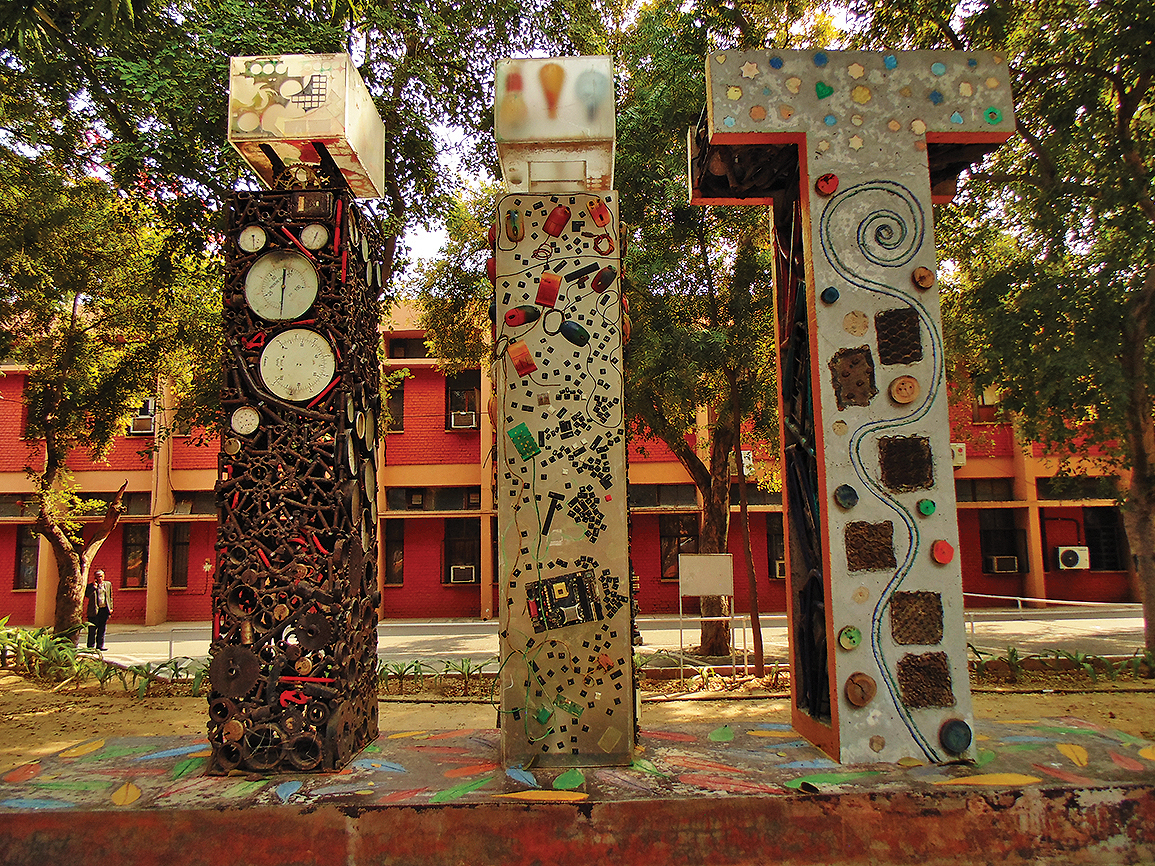
The alarm goes off. The snooze button is pressed more than a couple of times. When our future engineer finally awakens, it’s 10 minutes to the start of class.
This is the predicament Hitesh Aggarwal, a student of industrial and production engineering at IIT-Delhi says he faced on a daily basis before the bicycle sharing app was launched on campus. The “LetUsCycle” app has made getting around the campus faster and easier. It has also cut down on the number of personal bicycles as it works on a share model.
It is just one of the green initiatives which the campus is working on — a place which is like a beacon of hope for the rest of Delhi. It’s green, cars are driven by the rules, cyclists ride unafraid and the university has an aura of peace which is missing outside its gates.
Conceptualised in July 2017, the app became operational in February 2018, and was in full swing by July last year, says general secretary of student affairs Jashant Suri.
The app and 200 bikes were provided by the start-up Greenolution. IIT-Delhi is the first campus they started off in, and are presently working to introduce the system in JNU.
The bike stands, 16 in total, are paid for by the institute which spent approximately Rs 10 lakh on them. The company has provided the bikes and the app at no cost. Their revenue comes directly from bike usage. It also provides the campus with e-rickshaws which go around servicing the bikes and also redistributing them, which makes life much easier for the
students.
But it hasn’t all been seamless. When the bulk of registration had been done around July, they started facing some setbacks. “Throughout July to December we were fire-fighting”, Suri says.
The initial problems were with pricing, pegged at Rs 10 for half an hour. But with most students requiring a bicycle from their hostel to the institute, the time bracket did not work to their favour.
And then another issue crept up: students trying to fool the
system.
He gave us an example wherein some students would never end the ride. This meant they could come back to use the bicycle whenever they wanted.
They have understood this point and plugged the loophole. A ride can now last for a maximum of 15 minutes, and is charged at Rs 2 (plus 18% GST).
The other issue which they are still facing is that the system requires Bluetooth but there are some dead zones in the campus, which means the app is unable to function smoothly.
Out of 16 cycle stands on campus, a few fall in these dead zones. Thus, their next intention — creating four virtual stands which would allow users to drop off their share bikes at a cluster, instead of the designated stands.
He adds candidly that no matter what the facility, students will always come with a grievance. “We are entitled people, including myself. Students would never be happy so they constantly come up to us with complaints and their own suggestions on how to navigate that problem.”
In their defence, however, he did admit that the app they have is not “top class”.
The institution could have had a link-up with cab hailing app Ola, which provides the same service to IIT-Bombay. Suri admits, “We could have had Ola which has a better backend and a robust system” but Greenolution’s three-year contract with IIT-Delhi will last at least till 2020.
Meanwhile, the venture is enjoying moderate success. With a total of 2,500 downloads till date and on average close to 1,200 rides a day, it is helping students like Hitesh Aggarwal make it to classes on time.
Other than the bicycle sharing initiative, the IIT-Delhi campus is working to make the campus a zero waste one. Simar Kaur Mattewal, general secretary of IIT’s NSS (National Service Scheme) says that while it may take some time to fructify, they are working hard to operationalise the concept.
For now, they have collaborated with the NGO Chintan Environmental Research and Action Group to manage its waste. Waste is divided into biodegradable and plastic, with the former being composted on site and plastic sent to Chintan for recycling.
“We have a biogas plant so we take vegetable waste from hostel waste,” Mattewal says. With this they have fuelled a car which is currently on testing mode.
They are also trying to target e-waste, with special e-waste drives planned for the end of semester. Plastic bags are banned on campus.
Five quiet corners across Delhi-NCR where February evenings slow the city down, letting breeze, fading…
A solo exhibition by Anjali Mittal exploring emotion, memory and intuition through layered blue-hued paintings
The incident occurred on Saturday near Bakhtawarpur. A senior police officer said a team rushed…
V K Saxena approves 20 per cent reservation, age relaxation, and test exemption for ex-Agniveers…
The fair at Gandhi Darshan brings together emerging and senior artists, showcasing over 200 artworks…
State Names Authority approves renaming of two metro stations and modifies seven others, aligning station…